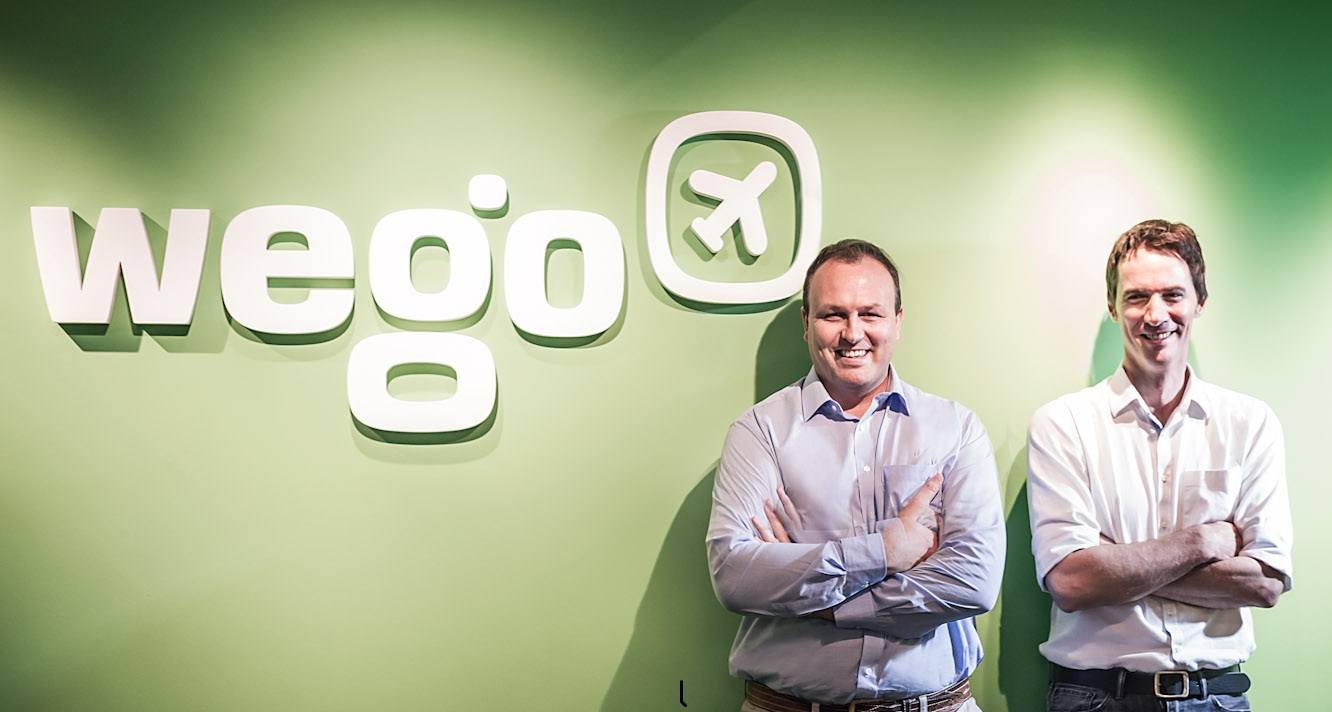
By Jaclyn Tiu,
Fifty percent of new startups fail in their first five years. But Singapore-based Wego, an online travel search and booking platform, seems to have beaten the odds: it has been in the game for 14 years.
The company became profitable over a year ago, and hit a milestone of US$1 billion bookings in 2018. Wego’s user growth has also “roughly doubled in two years,” says CEO and co-founder Ross Veitch. It now has 15 million accumulative app installs and 10 million monthly active users.
Before starting Wego, Veitch served as the head of product and engineering for Yahoo, working out of the internet search pioneer’s headquarters in the city-state. In the role, Veitch met the team behind FareChase, a New York-based firm that Yahoo acquired in 2004. The company, which closed down in 2009, ran a travel website where people could search for flights, hotels, and travel guides to compare prices.
“I thought, ‘That’s a pretty cool product.’ It was something I wanted to use in my own life,” Veitch recalls. He also thought that the price comparison model was well suited for Asia because of the region’s fragmented travel market.
In 2005, he quit his job and set up Wego together with Craig Hewett, whom he met through a mutual friend. Hewett was running the Asian ecommerce operations for InterContinental Hotels Group at the time. The two bootstrapped the startup in the first few years before securing funding in 2008. Since then, Wego has completed a total of five funding rounds that have raised US$59 million to date.
How it works
Customers can use Wego’s metasearch engine to look for deals on flights and accommodations. Those deals are aggregated from sources like airline and hotel websites, online travel agencies, and travel platforms like Booking.com and Agoda.
Once users click on a flight or hotel they like, Wego’s interface links out to the direct airline, hotel, or travel site where people can finish their bookings. But according to Veitch, users can now complete their bookings on Wego itself – a feature that’s been rolled out progressively over the past two years. Wego’s service can be accessed via its localized websites or mobile apps.
“There’s lots of different price points in the market for the same products,” says Veitch. “A lot of people spend a lot of time hunting around looking for deals. We effectively help you do that in one place.”
Most of Wego’s earnings come from commissions it gets from bookings. While their cut tends to vary between markets and business partners, Veitch says the company earns between 2 to 4 percent for each flight and 10-plus percent per hotel booking. Other revenue streams include display advertising and marketing partnerships.
When it was launched, Wego concentrated on the Southeast Asian market. Today, it also caters to the Middle East and North Africa (MENA) region.
According to Veitch, this geographic focus is what sets them apart. “You can think of us like an emerging markets specialist,” he explains.
The fallout of a competitor
Wego has survived the last 14 years, but it’s part of a competitive industry that has caused some startups to flame out.
One such company is Hong Kong-based flight booking platform Zuji. In November 2018, it was suspended by the International Air Transport Association (IATA) for failing to make payments for the tickets it bought from participating airlines. An IATA representative said Zuji would be reinstated once the payments were made. But shortly after, Zuji’s websites for both Hong Kong and Singapore were down, with the message “New site coming soon.”
By January 2019, Zuji’s licenses in both markets had expired, and the company has yet to renew them. Its websites now show error messages, and the last update on its Facebook page says it’s experiencing “technical difficulties” related to processing refunds.
Read original story on Tech in Asia.